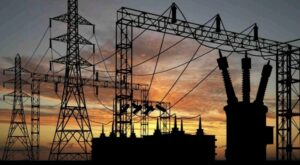When the Grid No Longer Collapses—It Simply Dies
 Senator Shehu Sani may have meant it as a joke, but his recent post on X (formerly Twitter) perfectly captured Nigeria’s deepening power crisis. “The nation’s power supply is terrible. The national grid is tired of collapsing—it just died,” he wrote. In that one biting line, Sani condensed what millions of Nigerians have long felt: despair masked as dark humour.
Senator Shehu Sani may have meant it as a joke, but his recent post on X (formerly Twitter) perfectly captured Nigeria’s deepening power crisis. “The nation’s power supply is terrible. The national grid is tired of collapsing—it just died,” he wrote. In that one biting line, Sani condensed what millions of Nigerians have long felt: despair masked as dark humour.
While the national grid did not collapse recently, the constant threat of failure looms. Nigeria’s power system has become a symbol of dysfunction, with previous collapses making headlines in the last few months. It’s the same story—unreliable infrastructure, insufficient generation capacity, and chronic mismanagement—and no amount of official statements or restoration efforts can disguise the reality.
For a country positioning itself as the giant of Africa, it is nothing short of scandalous that over 90 million citizens still live without reliable access to electricity. From rural villages to tech hubs in Lagos and Abuja, Nigerians power their lives with generators—burning diesel and petrol not out of choice, but necessity.
Yet, every year, the government announces bold reforms, budgetary allocations, and partnerships with international donors. These announcements rarely translate into lasting change. Instead, the national grid remains a fragile network unable to bear the burden of modern development.
The consequences are more than inconvenience—they are a drag on national progress. Businesses lose revenue daily. Health centres operate in darkness. Students study by torchlight. Insecurity worsens in unlit communities. And with every collapse, public trust erodes further.
We must now ask the difficult but necessary question: what will it take to fix Nigeria’s power sector?
First, decentralisation is key. A single national grid cannot and should not carry the hopes of 200 million people. States and local governments must be empowered to develop their own energy systems—whether through solar mini-grids, hydroelectric dams, or independent gas plants.
Second, we need a transparent audit of the entire power value chain. Who profits from the dysfunction? Why have billions in intervention funds yielded so little? Until there is accountability, the cycle of collapse will continue.
Finally, citizens must demand more. We’ve normalised suffering, turning failures into memes. But humour should not replace action. We must hold leaders, regulators, and private operators to higher standards.
The national grid may be dead. But our collective will to revive the sector must not die with it.







